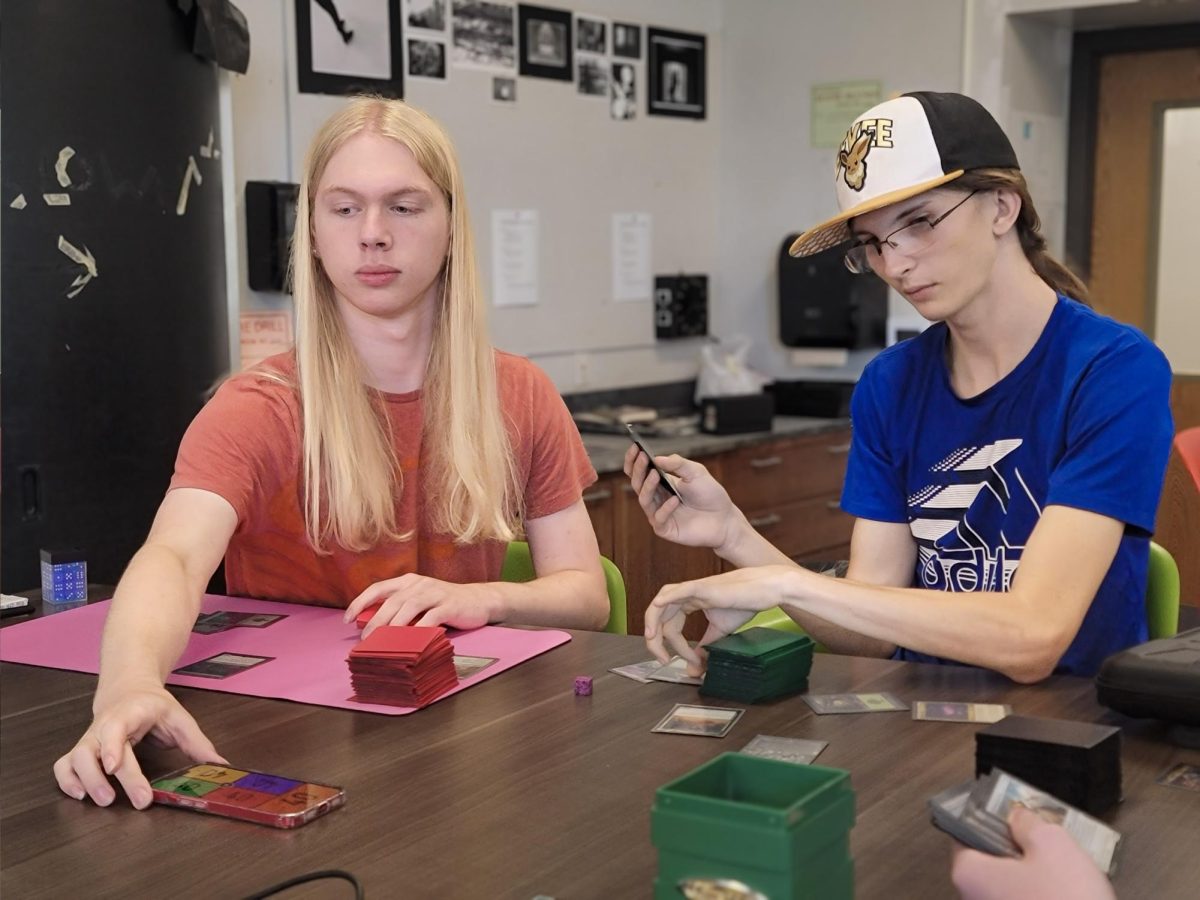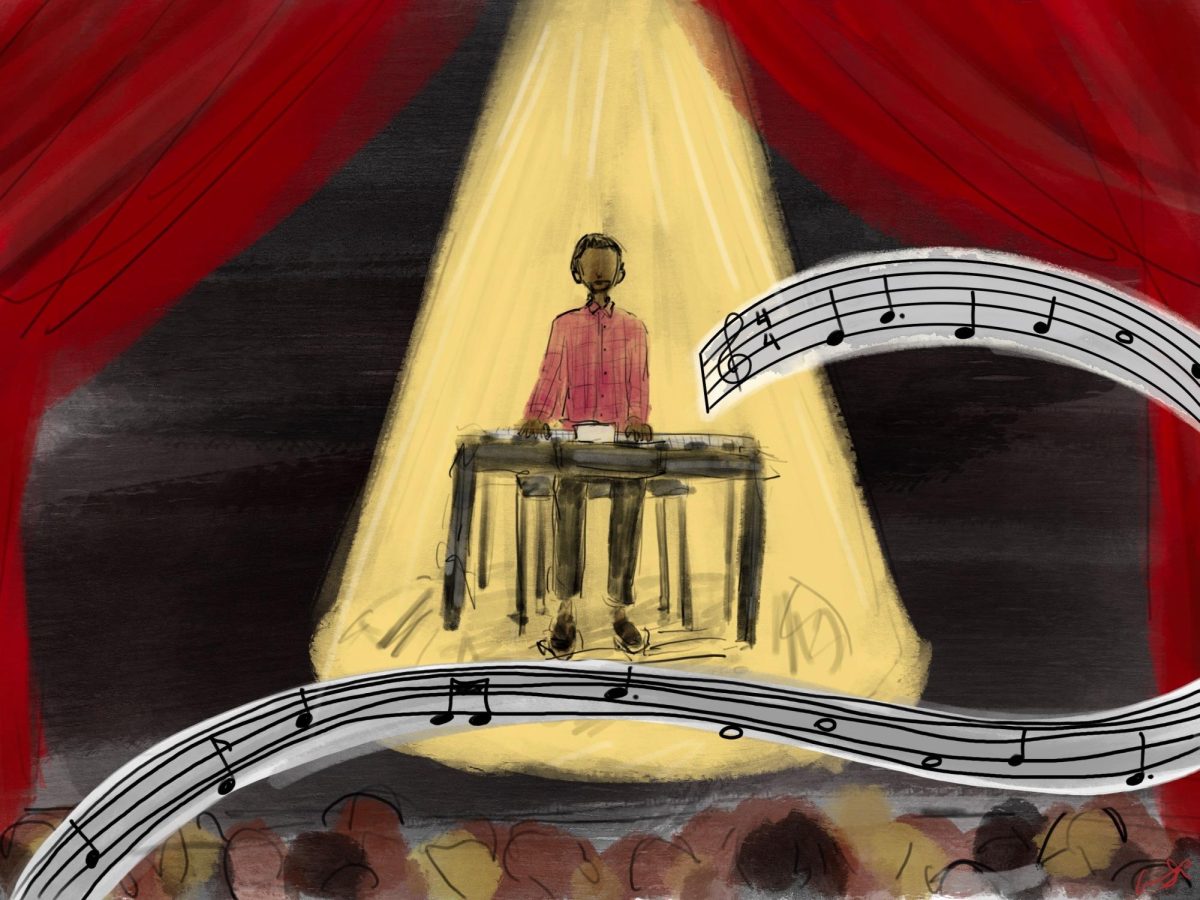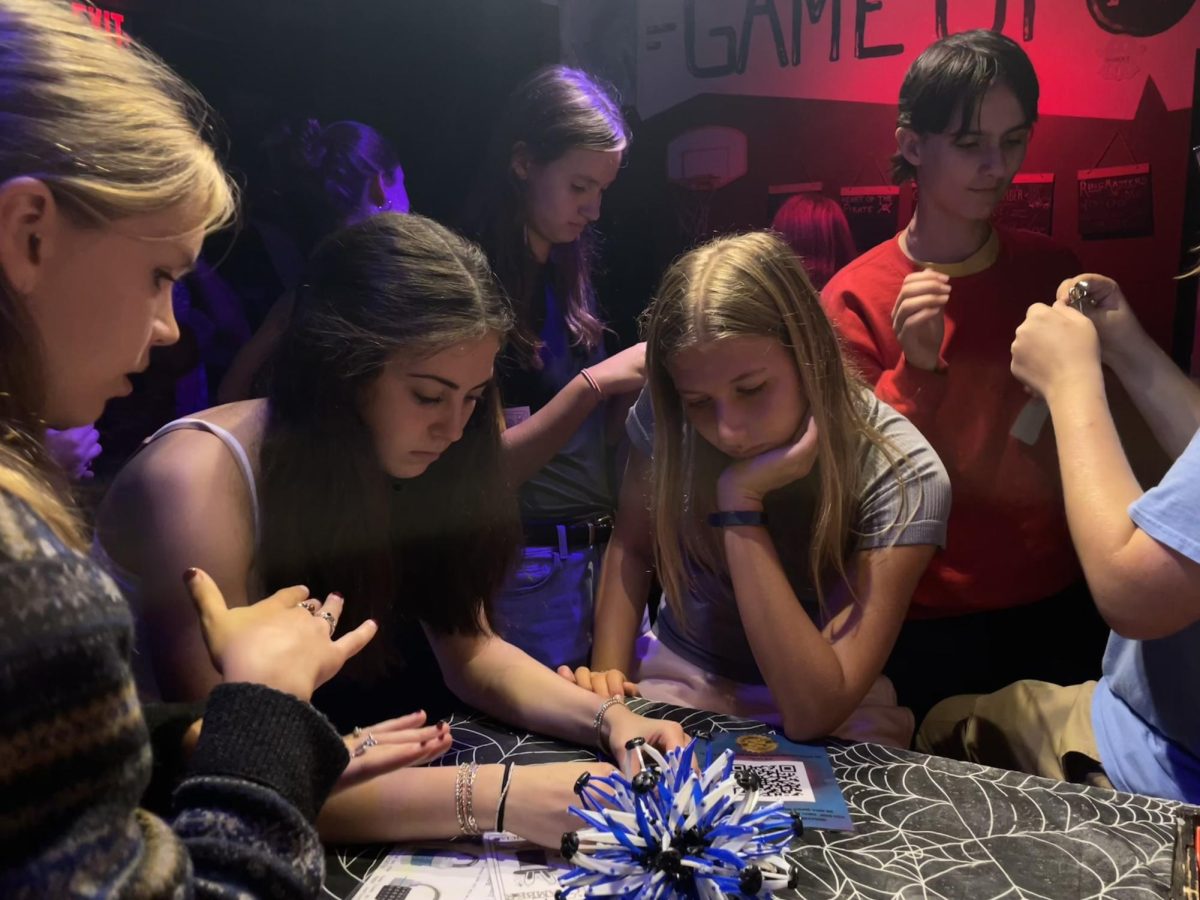
On Saturday, Feb. 10, five schools carted sets, actors, tech crew and other theater necessities to Skyline High for MIFA (Michigan Interscholastic Forensics Association) Regional theater competitions. At the festival, each school set up, performed and disassembled the set for their shows in 45 minutes, not including the 25 minute spike time when they set up the technical elements of their show.
For many actors and techies, adapting to the differences required by competitive theater can be challenging. Skyline actors Josh Krivan, Alex Kime, Brittany Roulo and Richa Saran noted that staying within the time limit was difficult. At their last rehearsal before districts, they clocked in at a little more than 46 minutes, which is more than a minute over the limit. Michael Shapiro, a Pioneer Theatre Guild actor, explained that about half of their play, “Spring Awakening,” was removed before rehearsals started. Even so, he said, “there were cuts to be made even after the initial cut.” Both Pioneer and Skyline managed to cut their plays to reasonable lengths and perform their shows within the time limit.

Difficulties for performing groups include the time limit, the necessary mobility of the set, and getting used to a new stage. Tech crews need to make sure that the sets they design can fit into a moving truck so the pieces can be transported to the competition. The crew also has to be extremely careful while packing and unloading the truck – they need to remember everything and make sure nothing breaks. “It’s stressful,” said Zoe Melcher, a member of Pioneer’s tech crew. As for the actors, Roulo said while performing in different theaters is part of the fun, “It’s just crazy different.”
Walking into Skyline on Saturday, visitors were greeted with the unusual sight of moving trucks, which competing schools had used to transport their sets and props to the competition. Inside, tech for the second show, Pioneer’s “Spring Awakening,” busied themselves preparing for their shot.

Each school approached the competition differently. For instance, West Bloomfield had no set or placement changes at all – they performed their entire show in a single living room. Lincoln’s large and costumed crew completely flipped their set to provide a second environment. Other schools used lighting and slight shifts in set location to move the setting of the action. Though they had to be dramas, as per the year’s theme, the play subjects differed. They ranged from philosophical to tragic to comedic in parts, with settings ranged from ancient Greece to the modern day.West Bloomfield, the first school to perform, was already backstage preparing for show time. Students from other performing schools waited with parents and friends for next show. Then the plays came. Though each only took 45 minutes to perform, the spike time before each show and the judging between them provided a break for audience members.
A competition show, or “comp,” can be a very different experience from a regular only-for-performance show. The competitive nature, difficulties of moving sets and lights, and stressful time limit are not for everyone. But some, like Dylan Summers, the set designer and set crew head for Pioneer’s play, thrive in this environment. “It’s the reason why I do Theater Guild… it’s a team effort…It’s not that actors or tech are more important or more recognized than each other… It is nice to be recognized for the work that you do,” he explained.
“Coming to competition is the best part of the process,” said Shapiro. For him, competition is where things click and he can enjoy being with fellow actors and tech. Melcher agreed. “Coming to competitions is actually where I get to know everyone.” While Shapiro participated in comp last year and is back, Melcher is still debating. “I’m sort of on the fence about whether I want to do it next year,” she said.
After a day of plays, critiques, and a dance party finale, the results were finally announced. The judges stressed that all of the shows were outstanding.

Following the announcement of excellent and superior awards for actor and tech accomplishments, the judges revealed what everyone was waiting for: who was going to go to States. Skyline Theater, for their performance of Amadeus, and Anchor Bay, for their performance of Children of Oedipus, had won and would be advancing to states. Mingquan Ma, who had just won a superior award and been informed that his school would be advancing to States couldn’t help but be pleased. “Oh, it feels excellent… I can’t, I really can’t describe it … Oh yes, [we’ll be ready]. We’ve still got some preparation to do, [but in] another week but we’ll be [ready]…” Thanks to a wild card pick, Pioneer High School will be joining Skyline and Anchor Bay at the State Competition.
MIFA’s State competition will take place Feb. 17 and 18 at Dexter High School.
Photos not credited to Mansfield were taken by Gabrielle Vuylsteke.




















